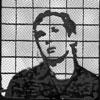一箱老旧、泛黄的连环画册开启了我的记忆之门。
A box of old, yellowed comic book opened the door to my memory.
"It is not unusual for collectors to shell out as much as 400 yuan (about 62 U.S. dollars) for a single picture-story book; the same books used to go for just 0.2 yuan over 30 years ago. The most expensive volumes fetch more than 10,000 yuan apiece.
Lin Rongqiang, a 46-year old businessman in Beijing, has more than 13,000 such books in his private collection. "In my childhood, I had few hobbies other than reading xiaorenshu," Lin recalls.
Lin's most recent purchase was a 700-yuan xiaorenshu that he bought o complete a series within his collection. When he began collecting in 1999, picture-story books could be purchased for just one yuan apiece. Speculators have driven prices up since then."
Xiaorenshu, which literally means a little picture book of scenario drawings, consists of highly detailed panels accompanied by a text of about 90 Chinese characters. The books were often adaptions from literary classics, such as "Romance of the Three Kingdoms" and "Journey to the West". Jiang noted that xiaorenshu used to play a significant role in mobilizing the masses, shaping public attitudes and opinions, particularly during the 1950s and the 60s. Between 1925 and 1945, picture-story books dealing with the theme of land reform, as well as China's battle against the invading Japanese, were published in areas that had been liberated by the Communist Party of China (CPC). "Xiaorenshu was then a vehicle to carry the government's policies," Jiang says. Xiaorenshu continued to enjoy a "golden age" of sorts, thanks to the late Chairman Mao Zedong who employed it to encourage people to support the CPC's practices and policies. For this very reason, over 260 million xiaorenshu were published between 1951 and 1956, Jiang recalls. Related articles

